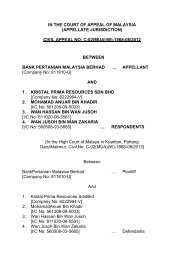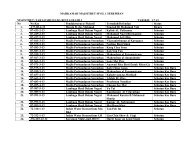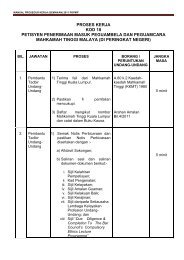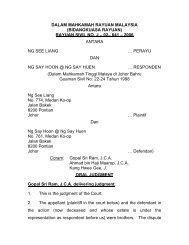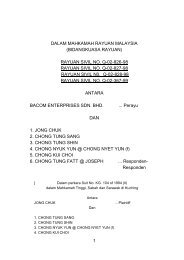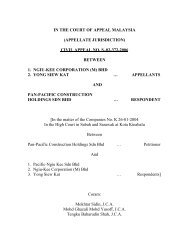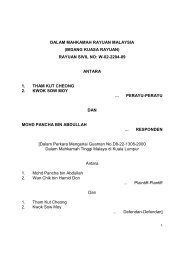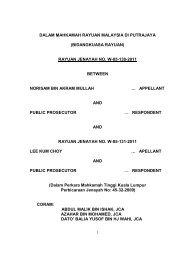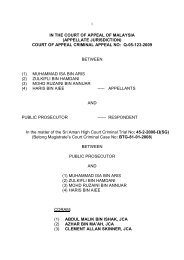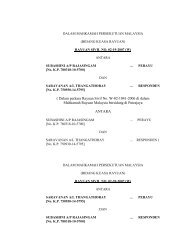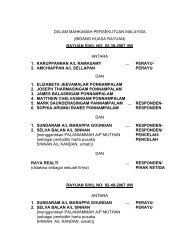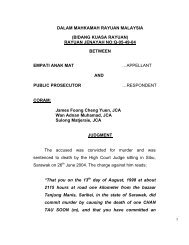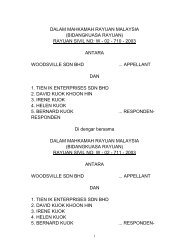THE PALACE OF JUSTICE CIVIL APPEAL NO. P-02-2074-2011 ...
THE PALACE OF JUSTICE CIVIL APPEAL NO. P-02-2074-2011 ...
THE PALACE OF JUSTICE CIVIL APPEAL NO. P-02-2074-2011 ...
Create successful ePaper yourself
Turn your PDF publications into a flip-book with our unique Google optimized e-Paper software.
The architect is engaged by the employer to act as his agent for the<br />
purpose of securing the completion of the works in an economical and<br />
efficient manner. He must perform these duties properly and if he fails to<br />
do so may be liable to the employer in damages. But in performing them<br />
he must act fairly and professionally in applying the terms of the building<br />
contract. Until recently it was thought that this gave rise to a ‘dual capacity’<br />
as agent and as quasi-arbitrator. It has now been settled by the House of<br />
Lords that an architect acting under the ordinary building contract is the<br />
employer’s agent throughout notwithstanding that in the administration of<br />
the contract he has to act in a fair and professional manner (Sutcliffe v.<br />
Thackrah [1974] A. C. 727).<br />
In our judgment, in determining whether a duty of care exists, and the<br />
scope of such duty, all relevant circumstances would have to be<br />
examined. This approach was enunciated by Gibbs CJ in The<br />
Council of the Shire of Sutherland v Heyman [1984-1985] 157<br />
CLR 424 (at p. 441):<br />
In deciding whether the necessary relationship exists, and the scope of<br />
the duty which it creates, it is necessary for the court to examine closely<br />
all the circumstances that throw light on the nature of the relationship<br />
between the parties.<br />
22



